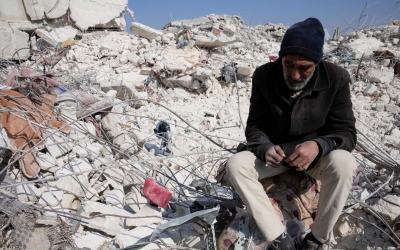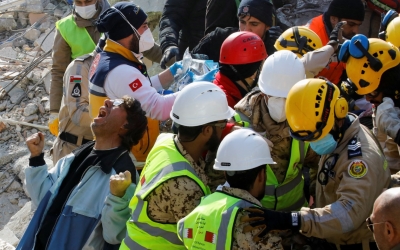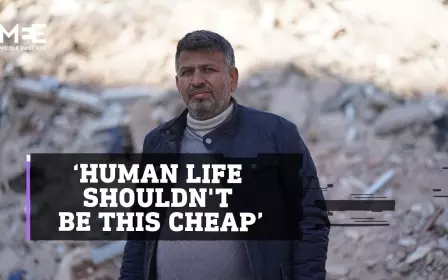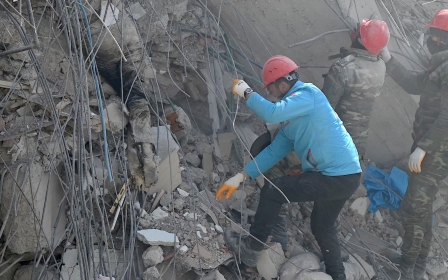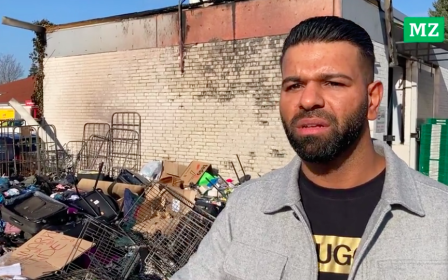Turkey earthquake: Psychologists face major task in helping grief-stricken survivors
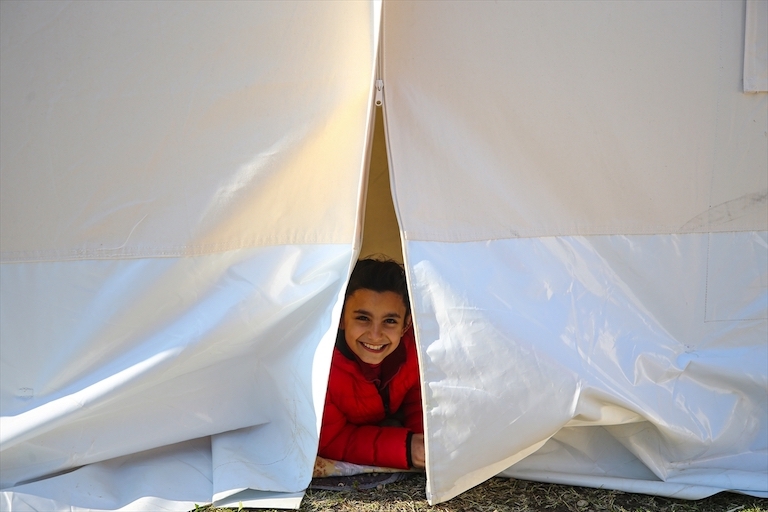
As the extent of destruction caused by last week's earthquake in southern Turkey becomes clearer, psychologists are warning that emotional scars, not immediately visible on the faces of survivors, will also need urgent attention.
Ten days after two powerful earthquakes caused thousands of buildings to collapse in southern Turkey and northwest Syria, killing more than 40,000 people and leaving millions homeless, rescuers are still pulling unlikely survivors from the ruins.
As aid groups scramble to send food and money to the disaster-struck areas, psychological assistance for those directly affected, especially chidren, is equally essential to their recovery, experts have said.
"We have to support adults who survived and made it to tents, as well as the children who are looking up to their adult family members who they find comfort with," Nevzat Ozer, the director of Adana's Family and Social Policies Office, told Middle East Eye.
Be it infants who were miraculously saved or the small children now living in tent cities, all of them need close care and much love, he added.
In camps set up by Turkish disaster management agency AFAD, grief-stricken adults could be seen sitting in front of their makeshift homes while children were playing nearby with whatever things they could find, with sudden bursts of their laughter piercing the sombre atmosphere.
"Earthquakes leave a physical scar, but the psychological impact is as destructive as the physical one," Ozer said.
According to the psychologist, nightmares, flashbacks and intense anxiety are among the most common signs of trauma, while symptoms like crying, shaking or remaining eerily calm are red flags for psychological aid workers.
The extent of the trauma survivors have experienced is enormous. Some have been pulled from the rubble after hours in the cold and darkness to discover family members have died or are missing, and the busy neighbourhoods where they lived have been reduced to mounds of shattered concrete.
Shielding children from the news
So far, around 280 social scientists and additional support groups from the cities of Konya, Mersin, Bursa and Kutahya have arrived in Hatay province, one of the worst affected areas, to help counsel those affected.
Psychologist Cihan Celik posted one exchange on Twitter he had with one of the countless paramedics involved in rescue efforts.
The paramedic told Celik that the children pulled from the rubble almost immediately asked about their missing parents.
"The wounded children ask: 'Where's my mum, where's my dad? Are you kidnapping me?'," the paramedic recalled.
According to the latest figures, at least 1,396 children have been pulled from collapsed buildings and taken to hospitals without any accompanying parents.
Ozer said that such children were likely to display signs such as bed wetting, loss of appetite, mutism, stuttering or difficulty making sentences, crying for no reason and/or acting out, suffering from agoraphobia and/or claustrophobia.
"The most important thing is for kids to get away from the trauma. Any news and story about the earthquake should be off limits."
To nurse the children back to normal life they should be encouraged to restart their hobbies. That can be anything from playing sports or partaking in the arts, he said.
"Telling children there is no problem, or that they should not be afraid, is negating their feelings which would cause more harm than support. Empathy is key. Telling your child you share the same anxiety, that you are afraid too, will make the kid feel seen and heard," he added.
"There needs to be a time of mourning because they may have survived but they have lost so much, their loved ones, their homes, their cars, their jobs and we are here to give them support to help them cope."
Middle East Eye delivers independent and unrivalled coverage and analysis of the Middle East, North Africa and beyond. To learn more about republishing this content and the associated fees, please fill out this form. More about MEE can be found here.


